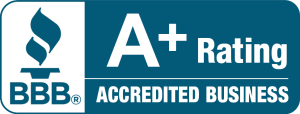As Ben Franklin noted, the two inevitable forces of life are death and taxes. But just like you can use healthy habits to stave off the former, you can employ strategies to avoid the latter.
One way to do this is to defer taxable income from one year to a later year to postpone payment of tax. This allows you to use more money for a longer period.
Postponing receipt of taxable income may also be useful because when you eventually realize the income at a future time, you may be in a lower tax bracket.
There are several strategies for deferring taxes, including:
- Traditional IRAs
- Employer-sponsored retirement plans
- Participating in nonqualified deferred compensation plans
- Purchasing life insurance
- Purchasing annuities
- Receiving compensation in the form of employer stock options
- Investing in Series EE savings bonds (which may also be called Patriot bonds)
- Selling assets using the installment sale method
- Investing in appreciating assets (stocks, bonds, real estate)
- Using like-kind exchanges
There’s a lot to choose from, so we’ll explore these strategies for deferring taxes in further detail.
Retirement Vehicles
While they help you save for retirement, vehicles like individual retirement accounts (IRAs), employer-sponsored retirement plans, and nonqualified deferred compensation plans can be especially effective in deferring the payment of taxes on your income.
Traditional IRAs
If you qualify for a tax deduction for your contribution to a traditional IRA, your IRA contribution will lower your adjusted gross income for the year of the contribution (or, in certain instances, the prior year).
Thus, you may be able to defer paying income taxes on your IRA contribution (and on the earnings in your IRA) until you withdraw money from your IRA.
Even if your contributions will not be tax deductible, the earnings that accrue on your contributions will grow tax-deferred until you take an IRA distribution.
If you leave your money in the IRA until you retire, you may enjoy an added tax benefit if you are in a lower tax bracket when you start taking distributions. If you withdraw funds from your IRA before age 59½, you’ll be subject to an additional 10% premature distribution penalty tax unless an exception applies.
If you meet certain income requirements, you can contribute to a Roth IRA. With a Roth IRA, contributions are not deductible, but qualified distributions are free from federal income tax.
Employer-Sponsored Retirement Plans
These represent a particularly effective method of deferring the payment of taxes on your earned income. There are numerous varieties of such plans (one of which is the 401(k) plan), and numerous methods of contributing to such plans.
Typically, a portion of your salary is deposited (by your employer) into the plan; you pay taxes on this portion (plus the earnings) only when you take a distribution from the plan. Thus, you can defer the taxation of part of your salary and can take advantage of the tax-free build-up of any investment earnings.
Certain Roth variations of qualified plans may be available where contributions are not deductible, but qualified distributions are free from federal income tax.
If you withdraw funds from your employer-sponsored retirement plan before age 59½, you’ll be subject to an additional 10 percent premature distribution penalty tax unless an exception applies.
Nonqualified Deferred Compensation Plans
Nonqualified deferred compensation plans are contractual commitments by an employer to an employee to pay compensation in a future year. If properly structured, the employee does not recognize taxable income currently, but rather pays taxes when the money is received.
As mentioned previously, one advantage of deferring the recognition of income is that you may be in a lower tax bracket at the time the deferred compensation is paid.
Life Insurance and Annuities
Although premiums are paid with after-tax dollars, insurance-related vehicles can effectively defer taxes on
accumulated earnings.
Life Insurance
Life insurance cash values grow tax-deferred until withdrawn or distributed. Certain life insurance benefits may also pass to your beneficiaries tax-free.
Pay attention to your contract.
For example, a modified endowment contract (MEC) is a class of life insurance contract that is treated differently than standard life insurance contracts, for federal income tax purposes.
In contrast to the tax treatment of a standard life insurance contract, you cannot withdraw your basis or investment in a MEC tax-free until after taxable income is withdrawn.
When a distribution from a MEC occurs, it is first treated as taxable income (to the extent that the cash surrender value of the policy exceeds your investment in the contract), then as a recovery of capital or basis.
Annuities
Annuities are arrangements in which you pay one or more premiums to an insurance company (or other financial institution) in exchange for the promise of a stream of payments representing a return of your premiums plus interest over some future period.
You may be able to defer the payment of taxes on interest earnings until the money is withdrawn. Presumably, you will not begin to receive annuity distributions until the future, when you are in a lower tax bracket.
When distributions occur, the interest component of your annuity payments will be taxed at ordinary income rates.
Remember that distributions before age 59½ may also be subject to a 10 percent federal penalty tax unless an
exception applies.
Employment-Related Stock Options
Employer stock options and certain other forms of equity-based compensation can be excellent tools for income
tax deferral.
There are several forms of equity-based compensation, including incentive stock options, nonqualified stock options, and employee stock ownership plans (ESOPs).
Of these three, incentive stock options (ISOs) perhaps offer the most favorable tax treatment from the standpoint of an employee.
An employer stock option is a right or option granted by an employer to its employees to purchase shares of the employer’s stock at a certain price, for a specified period.
If an employer stock option qualifies as an ISO, the employee does not recognize any taxable income when he or she exercises the option. Instead, the employee recognizes taxable income or gain only when a disposition occurs (generally, this means when the stock is sold).
The tax treatment of this disposition depends on whether the employee satisfies certain holding period requirements.
Series EE Savings Bonds
The U.S. Treasury sells Series EE savings bonds at a discount. This discount is not included in the holder’s income until maturity (unless the holder elects otherwise).
As a consequence, you can use Series EE savings bonds to defer income taxes simply by not cashing them in right away. The interest received on Series EE savings bonds is exempt from state and local taxes.
Furthermore, the interest received on certain Series EE bonds used for educational purposes may be exempt from federal income tax if certain requirements are met.
Installment Sales
If you must sell capital property (other than stock or securities) this year, you may be able to arrange with the purchaser to delay payment of part of the proceeds by having the payments made to you in installments over the next few years.
This may be useful if you expect to have a substantial capital gain from the sale of a capital asset because you may be able to spread your gain over the taxable years in which you receive the installment payments (assuming that you report your income on the cash basis).
In addition to allowing you to defer the payment of tax on a portion of the gain on the sale, the installment method may allow you to reduce your total tax liability resulting from the sale and minimize the chance that the sale will push you into a higher tax bracket.
Just be aware that you may be required to impute interest income on the unpaid balance.
Appreciating Assets (Stocks, Bonds, Real Estate)
If you’re in a high tax bracket and you purchase low-yielding investments with capital gain potential, such as growth stocks, the current income tax liability generated by your investments will be minimized.
You may then be able to hold these investments until after you’ve retired, when your marginal tax rate may be
much lower.
How Can Like-Kind Exchanges Help You Defer Taxes?
Generally, if you trade business or tangible investment property for another business or investment property of a “like-kind,” you will be able to defer recognition of gain or loss.
While your gain will eventually be subject to income tax (when you sell or dispose of the like-kind property), you may be able to defer taxation for several years. Several requirements must be met to qualify for like-kind exchange treatment.
For exchanges completed after December 31, 2017, the nonrecognition of gain or loss under the like-kind exchange rules is generally limited to the exchange of real property that is not held primarily for sale.
Conclusion
There’s a lot to consider when trying to defer taxes. While all of these strategies are useful, finding the best one for you means taking into account your particular goals, timeline, and comfort level.
As experienced financial professionals, we help clients like you figure out the best investment plan for their situation, so that they can put their money to work gracefully with peace of mind.
Please connect with us and let us help you plan for your dream future. We would be delighted to go on the journey with you.










